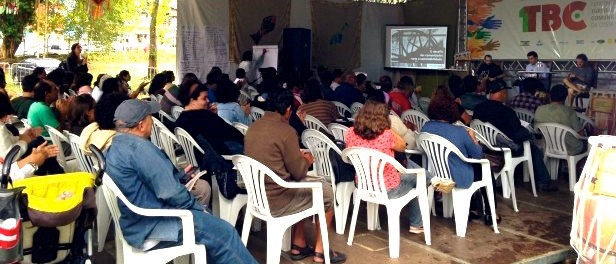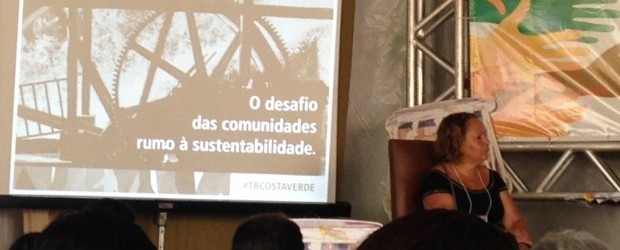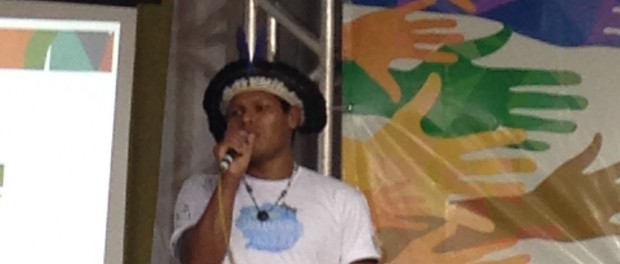
The first Green Coast (Costa Verde) Community Tourism Meeting took place in the caiçara (traditional fishing) community of Tarituba in Paraty, Rio de Janeiro state, from July 23 to 25. The meeting was organized by the Paraty Tourism Secretariat in cooperation with the Angra do Reis Foundation for Tourism (TURISANGRA).
Community tourism is characterized by community participation in the development of tourism activities, which contributes to the appreciation of local identity and preservation of the territory. It is an alternative to the traditional model of tourism which focuses solely on economic growth and can negatively affect destinations by excluding local culture. Community tourism proposes the concept of sustainable development, which when applied to tourism also contributes to generating wealth for the receiving communities. It involves socio-economic and environmental challenges that reinforce the necessity to offer better living conditions to the local community.
During the three days of meetings in the caiçara community of Tarituba, the Forum for Traditional Communities of Angra, Paraty and Ubatuba (of which caiçara, indigenous and quilombola communities are members) joined with the Rural Federal University of Rio de Janeiro (UFRRJ), the residents’ association, collaborators and researchers. They discussed community tourism in the Costa Verde region of southern Rio de Janeiro state and northern São Paulo state as a response to the uncontrolled growth of the unorganized tourism that has been putting pressure on the region, threatening both the natural and the human environment.
On the first day one roundtable focused on the issue of Territory, with issues presented which the region has been experiencing since the 1970s when the BR 101 highway was built. Several communities have been removed from their original localities due to real estate speculation, with many now living in the peripheries of the towns of Angra and Paraty.

On the first day another roundtable focused on Tourism with the concepts and practices of Community-Based Tourism presented and with members of traditional communities speaking of recent difficulties they have encountered. The concepts were presented by Teresa Mendonça, professor at the UFRRJ,
José Roberto from the caiçara community of São Gonçalo talked about how his community members have suffered in their struggle to maintain their territory. Rafaela Albino from the caiçara community of Praia do Sono talked about the uncontrolled tourism her community experiences during high season, when residents change their routines to be able to meet the demands of tourists. Angélica Pinheiro from the Quilombo do Bracuí community argued tourism should be differentiated and organized by the community itself. Lucas Xunu from the Sapukai indigenous village talked about the importance of indigenous culture.

During the second day of the meeting, experiences with community tourism were shared by Rede Tucum (from the state of Ceará) and Projeto Bagagem. Daniele Elias from the Campinho da Independência quilombo in Paraty presented a community-based ethno-cultural itinerary. Edmundo Gallo from Fiocruz presented the Observatory for Sustainable and Healthy Territories that is being organized in the traditional communities along the Costa Verde.
This event was very important for the discussion on sustainable tourism in the traditional communities in the Costa Verde region. The meeting was a positive step for the strengthening, articulation, and communication between communities that have been struggling to maintain their own territories and to preserve their history and memory.
Thaís Rosa Pinheiro has a masters degree in Social Memory, for which she researched community tourism at the Campinho de Independência quilombo in Paraty.
